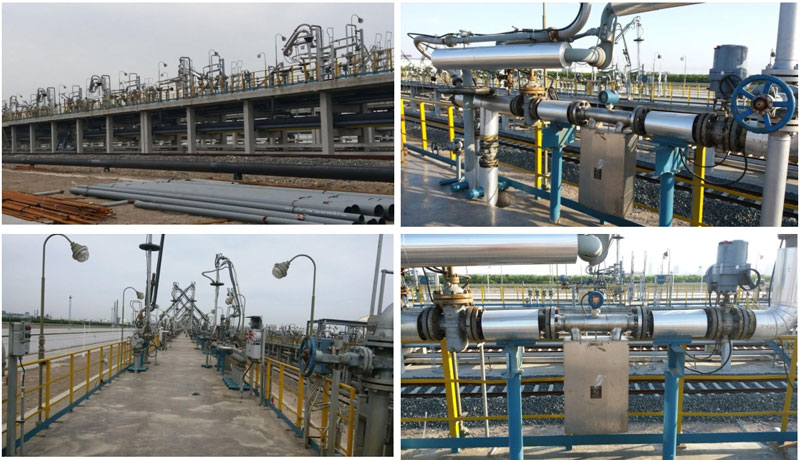Seeking flow measurement innovation How do coriolis flujometro devices compare to traditional flow meters

A Coriolis flow meter applies fundamental physics utilizing inertial variations to detect flow metrics. During fluid movement inside curved tubing, inertial forces cause path alterations in flow direction, reflective of throughput, supporting precise flow calculation. These devices exhibit broad flexibility, fit to monitor varied substances with minimal hydraulic impact.
- Advantages of Coriolis Flow Meters:
- Exceptional accuracy assurance:
- Wide-ranging measurement adaptability:
- Concurrent fluid quality metrics:
Examining Coriolis Meter Basics
Innovative Coriolis meters act as effective gauges deployed to measure volumes within pipe systems. Exploiting Coriolis force mechanics, deflections in fluid trajectory inform measurements. Within rotating pipes, fluid trajectory undergoes lateral shift, dependent on flow orientation. Measurement units discern deviations, altering deflections to flow information proportional to flow magnitude.
- Applications of Coriolis flowmeters include:
- Operational regulation in oil and gas sectors
- Agricultural supply
- Environmental surveillance
Finding Ideal Coriolis Devices
Coriolis meters excel in providing dependable accuracy for fluid flow analysis. Yet, with an array of available models, deciding on the best fit for applications may be intricate. Key considerations when securing your Coriolis flow meter include: * **Characteristics of the fluid:** The fluid analyzed impacts construction and performance. * **Flow capacity range:** Meters handle within distinct flow limits. Ascertain your needs are met. * **Accuracy standards:** Different use cases call for diverse precision levels. Outline these to opt for models. * **Operational environment:** Factors such as temperature, pressure, and fluid viscosity modify meter outcomes. * **System compatibility:** Assess integration and interfacing with existing infrastructure.Strengths of Modern Coriolis Meters
Modern Coriolis devices provide a diverse spectrum of advantages for industrial needs. Chiefly, these meters offer exceptional precision, facilitating precise dynamic tracking. Besides, Coriolis meters provide simultaneous dual property detection in one device, ensuring them remarkably suited for demanding measurement. Furthermore, their strength enables operation in severe backgrounds.
- Consequently, these devices see extensive use in areas like oil and gas, chemicals, food and beverage sectors, and pharmaceuticals.
Progressive Procedures for Flow Meter Accuracy
Precision-critical contexts prioritize Coriolis flowmeter performance. Ensuring dependable, repeatable results demands refined calibration methods. These exceed basic protocols by integrating precision hardware and detailed analysis.
Certified standards guarantee calibration quality. By comparing meter outputs with known benchmarks, technicians detect inconsistencies and apply corrections.
- Multi-point calibration, assessing various flow rates, yields complete performance profiling across meter ranges.
- Advanced software assists data management and visualization, enabling system evaluation.
Consistent use of advanced calibration ensures optimal meter accuracy, driving system excellence across industries.
Resolving Common Coriolis Flowmeter Problems
Coriolis meters provide trusted accuracy and adaptability yet face occasional deficiencies. Early issue identification is vital to reducing downtime and maintaining system reliability. Typical complications involve misread flow, often caused by improper setup, dirty sensing components, or flow disturbances. Output variances may result from changing fluid properties, mechanical vibrations, or electromagnetic disturbances. Effective problem-solving requires thorough examination of conditions, sensor outputs, and operational logs.
- Consistent monitoring for damage or contamination applies.
- Verification against standards maintains accuracy.
- Tracking readings aids early detection.
- Optimal arrangement helps reduce interference.
Using proven techniques fixes common Coriolis flowmeter challenges, ensuring reliable fluid monitoring and operational consistency.
Automated Industrial Flow Measurement via Coriolis Meters
Coriolis sensors offer dependable flow measurement within industrial applications. Utilizing the Coriolis effect triggered by fluid passage inside vibrating tubes, deviations in tube vibratory behavior correspond to fluid density. This aspect enables state-of-the-art quantification of process streams even in demanding environments.
They align effectively a wide scope of uses, including industrial synthesis. Their resilience makes them apt for extreme conditions, and their data transmission enables fluid network integration with production networks.
High Accuracy Flow Measurement with Coriolis Sensors
Coriolis sensors deliver strong accuracy across varied applications. They employ mass inertia principles to quantify mass flow, yielding remarkable precision under adverse flow regimes. As opposed to alternative flow technologies, Coriolis sensors provide uninterrupted readings, facilitating accurate oversight. Their dual ability to coriolis flujometro measure mass flow and density makes them ideal for multivariate flow assessments. Furthermore, Coriolis sensors exhibit endurance, thriving in severe operating locations. This combination of precision qualifies Coriolis sensors as a dominant choice for demanding flow measurement situations.Coriolis Instruments for Hydrocarbon Industry
Coriolis flowmeters have established themselves as dependable tools in the oil and gas field. Their capacity to simultaneously measure mass flow and medium concentration renders them flexible for many operational tasks. In refining workflows, Coriolis meters facilitate monitoring hydrocarbon streams in pipeline systems. They also fulfill vital roles in production control and guarantee precise metering for cost control.Water Sector Instrumentation with Coriolis Meters
Metrical solutions based on Coriolis offer core analytics for fine-grained assessment in water management contexts. Utilizing mass effect principles, they detect flow variation through bent tubes. This precise data allows real-time hydration control, critical for upgrading system performance.
- Uses of Coriolis flowmeters in water systems encompass broad functions, such as: supplying water to homes and industries, observing water demand for irrigation and electricity generation, and overseeing water flow in cleaning plants.
- Positive Aspects for Coriolis flowmeters in this area feature: superior detail, broad range across volumes, and low upkeep requirements.
Boosting Measurement Accuracy via Coriolis Systems
Coriolis flowmeters have proven themselves as well-regarded solutions for analyzing media. These tools apply the Coriolis effect to determine both mass flow and fluid density. Incorporating Coriolis technology can increase measurement accuracy, minimize operating expenses, and supply insightful data about process attributes. Their flexibility enables use in a ample range of domains such as oil and gas.
